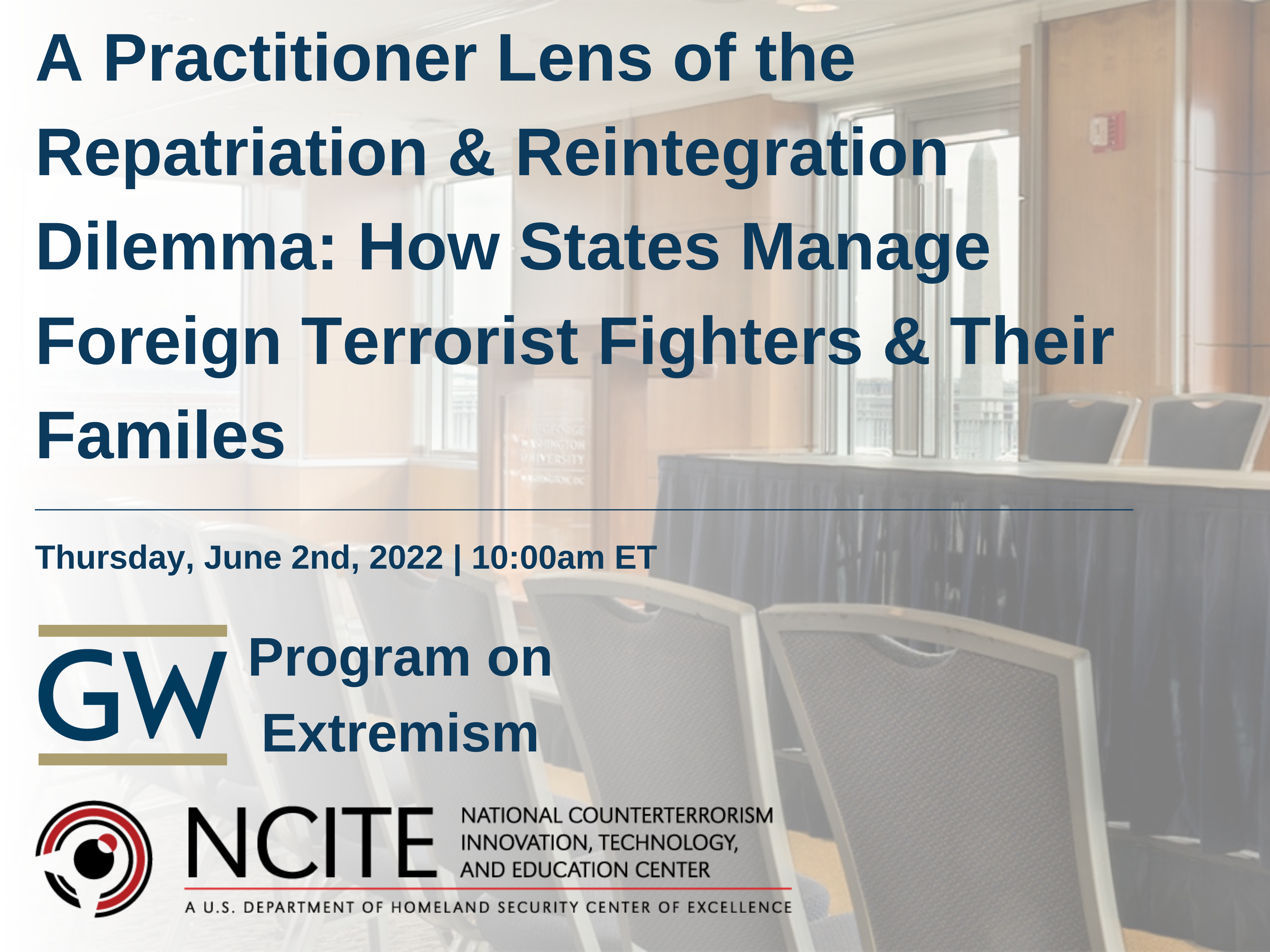A Practitioner Lens of the Repatriation & Reintegration Dilemma: How States Manage Foreign Terrorist Fighters & Their Families

Summary
Across the world, countries have handled the question and practice of repatriation and reintegration of former foreign terrorist fighters differently. In recent years, tens of thousands of foreign nationals and their families left extremist organizations and have been held in detention camps in Syria, Iraq, and elsewhere, as governments determine the best approaches to repatriate their citizens. The review of globally and locally tailored methods, mechanisms, and program evaluation guidelines for repatriation and reintegration is critical to effective global cooperation on the issue of former foreign fighters.
The Program on Extremism at The George Washington University and the National Counterterrorism Innovation, Technology, and Education Center (NCITE) hosted an online discussion as part of our grant with the Department of Homeland Security - Science and Technology Directorate on the current landscape of repatriation and reintegration with a focus on foreign terrorist fighter families in a practice-forward approach. The panel, moderated by Program Senior Research Fellow Haroro Ingram, featured insights from:
- Julie Coleman, Senior Research Fellow leading the Preventing and Countering Violent Extremism (P/CVE) Programme at the International Centre for Counter-Terrorism – The Hague (ICCT)
- Siobhan Simojoki, Acting Deputy Chief of United Nations International Organization for Migration (IOM) Mission in Iraq and Head of the Peacebuilding and Stabilization Division
- Gina Vale, Senior Research Fellow at the International Centre for the Study of Radicalisation (ICSR) and an Associate Fellow at M&C Saatchi World Services

